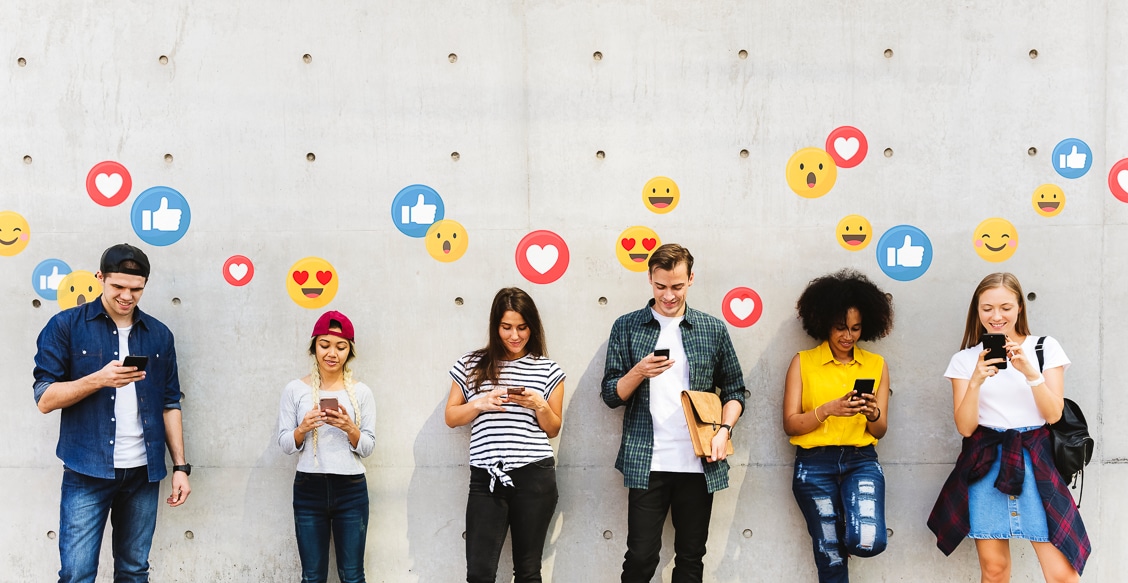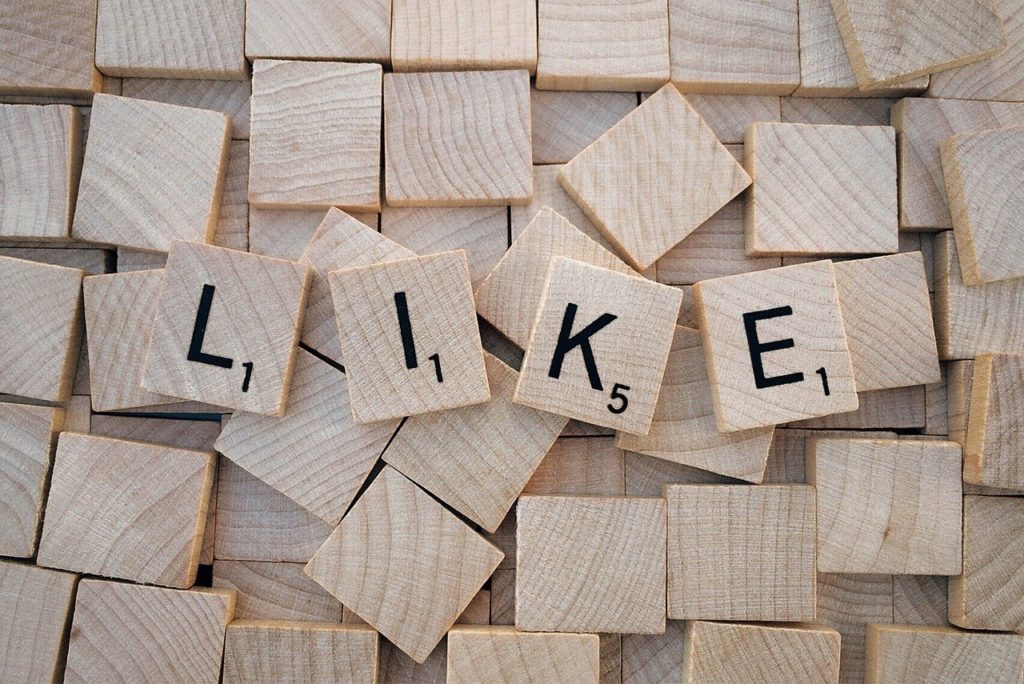

To stay in the loop on topics like social media engagement, subscribe to our Newsletter
Social media engagement: is it a quid pro quo game? I was told by someone who had liked, for a while, every post I put on LinkedIn, then stopped liking anything I wrote, all of a sudden: “Joanne, you are not liking MY posts back!”
I first thanked her, then said that I was just too busy with growing my agency and delivering my clients’ work to read every post on LinkedIn. After apologizing for missing her posts, I said, “When I do have time to read posts, I only like what I truly like. I hope you will do the same.”
I don’t know about you. When I clicked “like” on LinkedIn and Facebook, often posted by complete strangers, I truly LIKED their content. I seldom “like” posts just because they were posted by friends who previously liked my posts. To me, like means like, it is not a quid pro quo. I’d rather have zero likes for my posts than have fake likes or likes-motivated-by-liking-backs.
A millennial friend used to text me every time he posted something on LinkedIn, and asked me to like it, and/or share it, and/or comment on it, because, he said, “The more engagements my posts generate, the higher ranking they get on LinkedIn and Google.” Really? Is Google so easily fooled? Anyone who knows about this, please feel free to leave your comments to educate me and the rest of the reading audience.
The first time I happily complied, since the article was well written and I like him as my friend. The second time, the article did not resonate with me, but I reluctantly “liked” it, on the account of his supporting me with my posts a lot more. But the third time, I ignored his request.
Social media is like “all things to all men”, – to some, it is a place to get emotional support and THERE IS NOTHING WRONG WITH THAT; to others it is a forum to share one’s opinions and ideas, and THERE IS NOTHING WRONG WITH THAT; to a lot of people it is a place to network, prospect, and connect, and THERE IS ABSOLUTELY NOTHING WRONG WITH THAT.
Yes, we humans ALL like to be liked, (myself included). On social media when we see content we truly like, PLEASE lavish your likes, comments, shares on the content that you support, and the Search Engine will take notice and help the endorsed-content stand out.

The answer is not as black and white as one thinks. The number of likes a post receives does not entirely reflect the value of the content, because
1) Popularity is not necessarily the only metric for value. It is not fair to compare the huge number of people who like pop music with the small quantity of opera fans.
2) Most people are not celebrities with a large “fan base”. If the purpose of posting is not solely to generate likes (or dreaming to become a celebrity), but to share valuable information, the number of likes a post will get entirely depends on the size of the audience the post serves. I personally don’t worry about how many likes my posts generate, since my target audience is mostly CEOs, business leaders, and seasoned professionals who usually don’t want to overexpose themselves with public social media engagements. But I know for sure that they do value high quality content.
3) Just because people don’t bother to click “like” does not mean they don’t like what they read due to many factors, one of which is that they may be competitors. I was pleasantly surprised to find out from analytics that marketing agencies and business development professionals are the largest audience of my posts! I even saw an almost verbatim use of what I wrote by a top marketing agency in San Francisco. Did they actually like my post? Obviously, to the point of risking plagiarism. Did they click “like” for my post they copied from? No. (No plagiarists would want to alert the original author about themselves.)
4) In the years preceding the 2008 real estate and financial market crash, any posts about the ROI from investing in real estate received tons of likes and fueled the frenzy that built up the bubble. More often than not, herd mentality gets it wrong.
5) It takes far more courage, discipline, and wisdom to tell the unpopular truth against herd mentality. In this scenario, the lone voice may be even disliked by many, but that does not diminish the value of an inconvenient truth most people would rather not hear.
Herd mentality is a form of bullying with the sheer size of the group or the mass. Herd mentality compromises or even destroys truth.
Herd mentality denigrates a democracy where critical thinking balances contrary information.
Herd mentality and blind faith, combined with state propaganda and mass manipulation, enabled the Nazis’ Third Reich, Communists’ brainwashing that led to Stalin’s Great Purge, and Mao’s Cultural Revolution where tens of millions were persecuted and killed.
“The best way to make people controllable is to make them predictable”, said my wonderful assistant David Leskin.
In the digital age where just a few monopolies such as Google, Facebook, Amazon control our daily lives AND how we share information, and where social media amplifies and multiplies the bitter political divides, it is all the more important not to give in to the herd mentality aspects of digital culture, which will backfire to hurt us all.
Intellectual independence and free thinking is vital for maintaining our fragile democracy, and for keeping social media as a free but not fake platform for self expression.
While I do encourage everyone to copiously shower our GENUINE likes to support great content, I don’t think pressuring and trading for likes is the right way to use social media.
Use social media to explore truth, share content that is valuable to others, and show gratitude for others, whether “liked” or not.
In my opinion, fishing for “likes” rather than giving value is a waste of time for both the “fishers” and the “fished”.
What do you think?
10 Plus Brand, Inc. is proud to be awarded as one of the best social media marketing agencies in the San Francisco Bay Area.
Written by Joanne Tan, June 29, 2021. © Joanne Tan, all rights reserved.
edited by Susan Olson.
Please don’t forget to like it, comment, or better, SHARE IT WITH OTHERS, – they will be grateful!
– To stay in the loop, subscribe to our Newsletter
(About 10 Plus Brand: the “whole 9 yards” is not enough, we go 10+ to exceed your expectations in brand building, digital marketing, and content creation for both business and personal brands.)
– Visit our Websites:
– Find us online by clicking or follow these hashtags:
#InterviewsofNotablesandInfluencers
